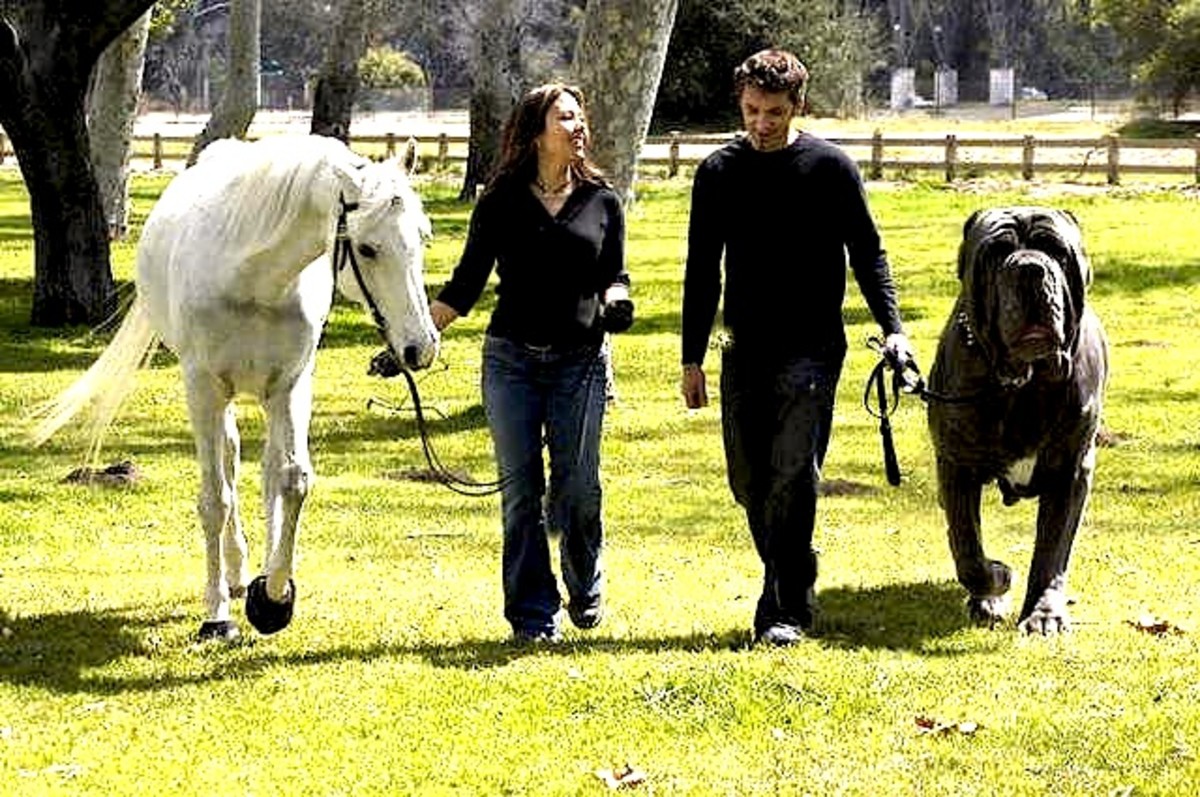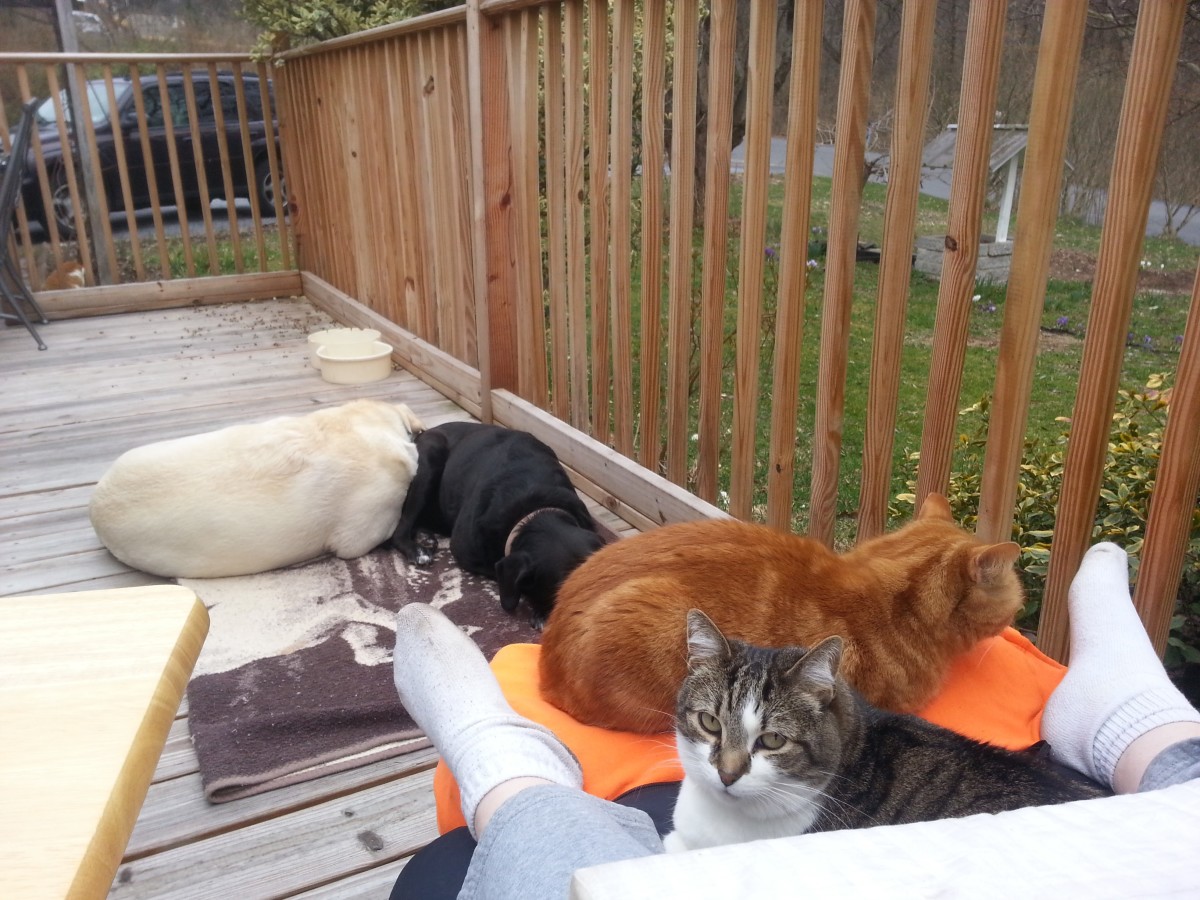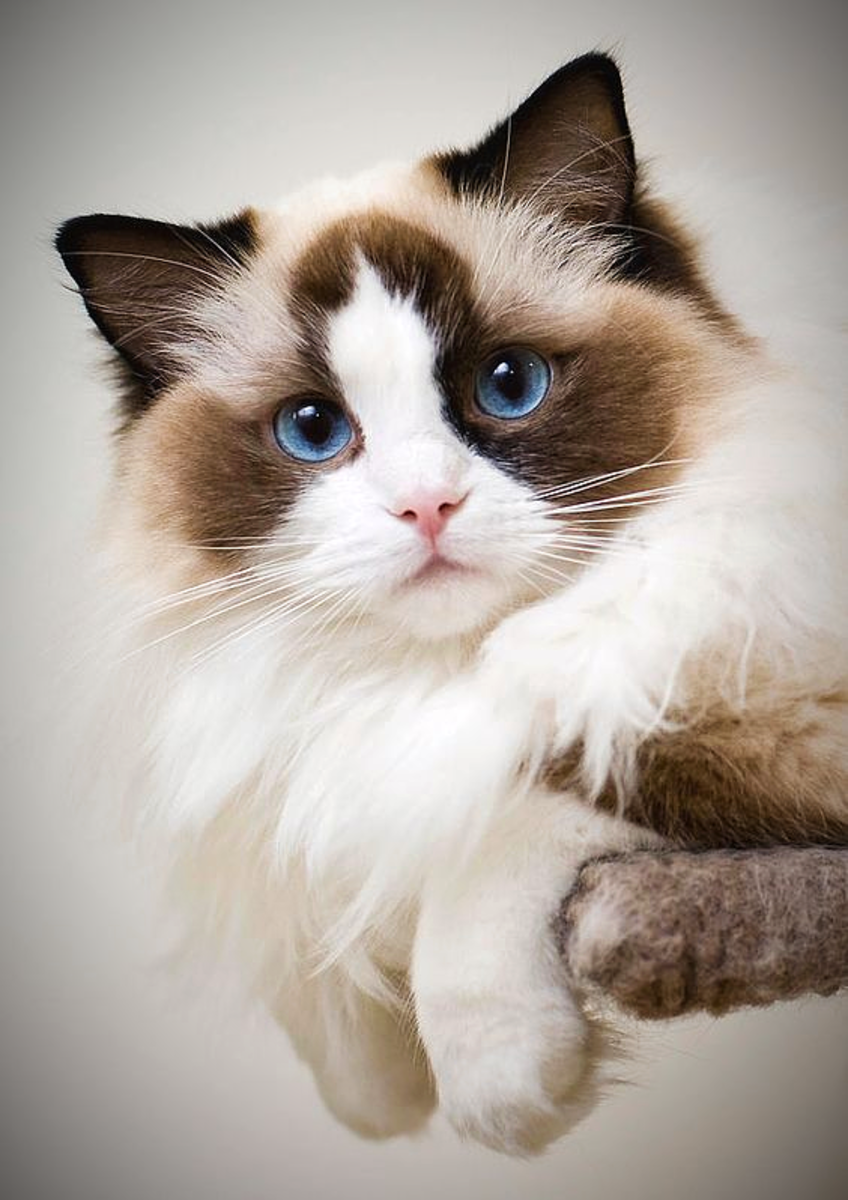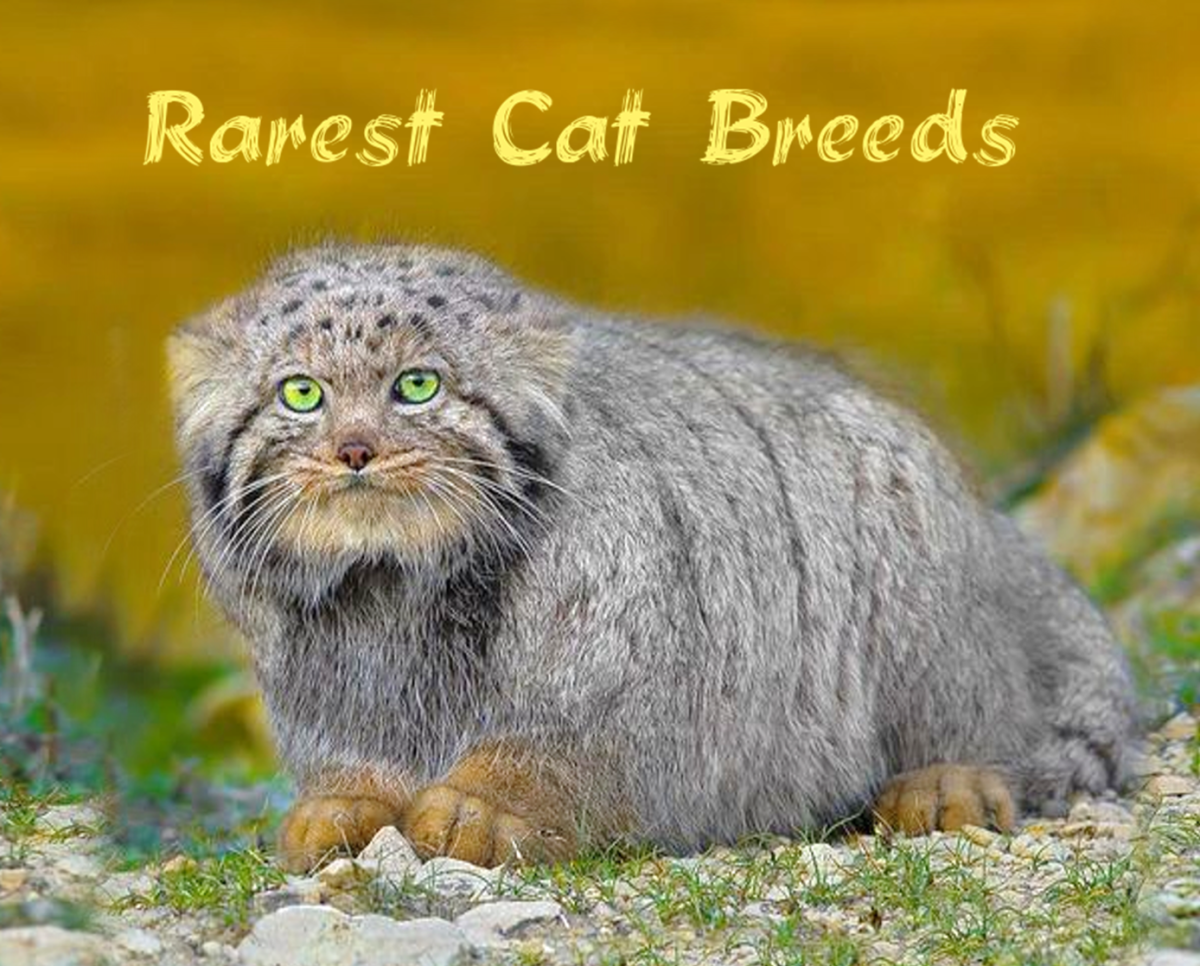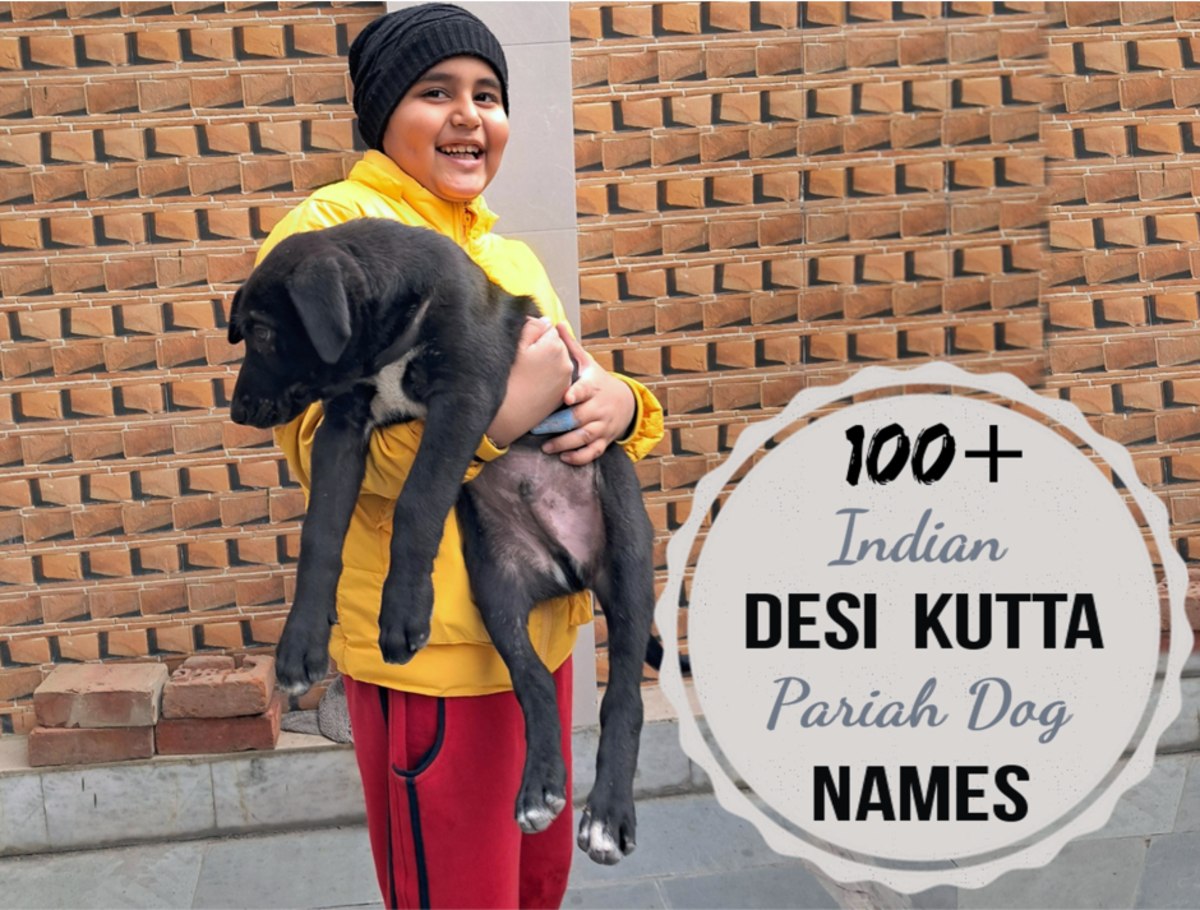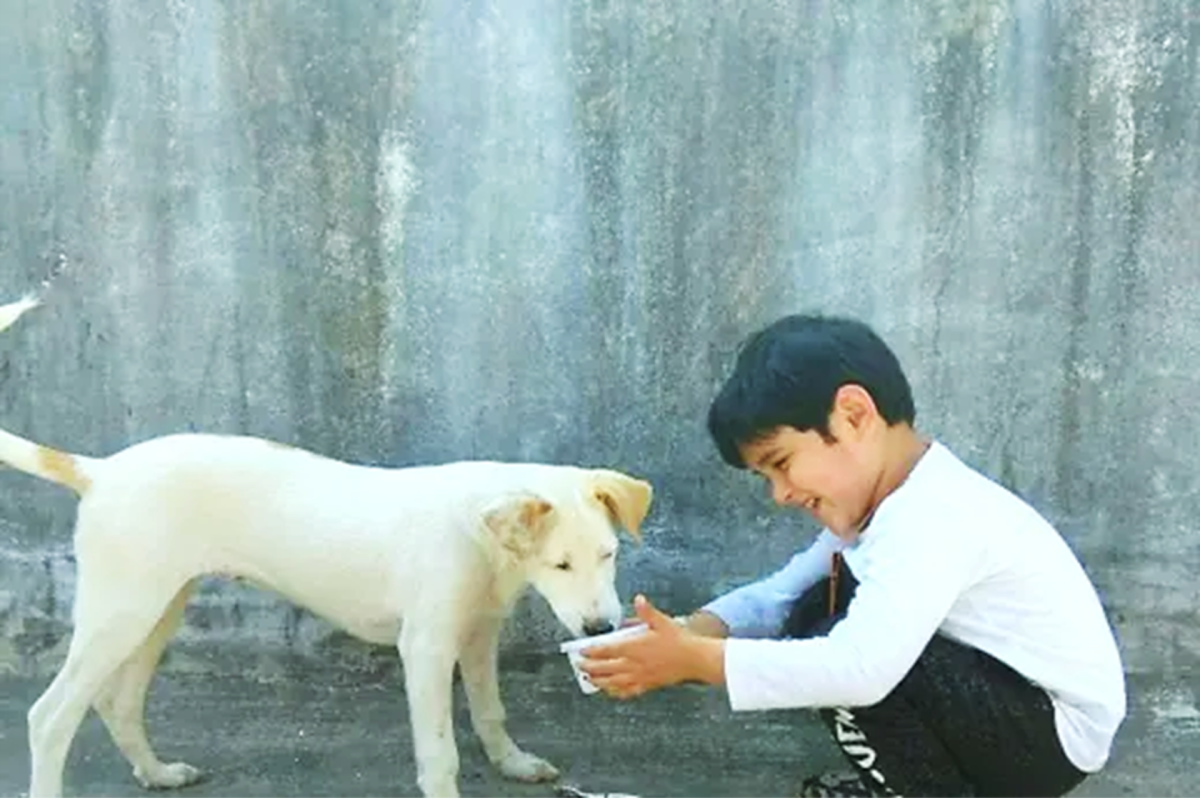Dog People and Cat People Personality Types
Pet Preference and Personality
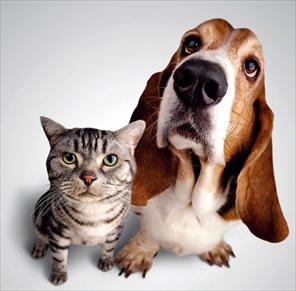
Dog People and Cat People
How does your personality and the pet you have match up?
Do dog people really have different personalities than cat people?
Some people call themselves dog people or cat people. What makes a person have a preference over one species of a pet over another?
When you talk to people about pets, they most probably will reveal that they are either a dog lover or a cat lover. Sometimes people’s preference is very strong. Some people are not just cat or dog lovers, some people are haters of one or the other species.
It is believed that people who are dog lovers or cat lovers of those who hate the species, may fit into a particular personality type.
Dogs and cats do have distinct behavioral characteristics and these behaviors may reflect the way a person can interact with their pets.
Pets and People Personality Types
Personality Traits and Pet Preferences
In the wild, non domesticated cats are solitary hunters and are active at night. Wild canines are social animals that travel together in groups. Dogs work together during daylight, from dawn to dusk. All dogs evolved from the wolf. Wolves are also pack animals. Dogs do not do well on their own. When they don’t have a pack, they look somewhat lost. Domesticated dogs retained these qualities and when they are adopted by a human family, the dog looks at the people they live with as part of their pack. A dog wants to be part of the activities of their family, sometimes even intruding on the things they are doing in order to be part of what everyone is doing and when they want to play or they feel bored.
Cats may or may not be part of the family activities, and if they are, their interest is limited.
There Are Dog People
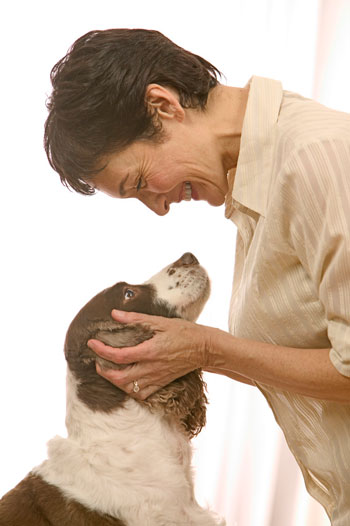
Differences Between Dog People and Cat People
In a poll done by Associated Press - Petside.com, there are more dog lovers than cat lovers. the majority of the people in their study had a strong preference for liking dogs. Only 4% said they disliked dogs, and 25% said they disliked cats. Married men were the most likely to dislike cats.
In another study done by psychologist Sam Gosling, at the University of Texas in Austin, over 4500 participants were asked in a web based study if they considered themselves dog lovers or cat lovers, neither or both. The people were also given a personality assessment test that would classify their personality into the Big Five personality traits. His research results showed that there are major personality differences between dog people and cat people.
According to the study, dog people showed that they were slightly more extroverted by 15%, slightly more agreeable by 13% than cat people, and 11% more conscientious than cat people. Both agreeableness and extroversion are associated with sociability. Conscientiousness has to do with self discipline, completing tasks, and achieving. Conscientious people often schedule things, rather than being spontaneous.
The study also showed that cat people were slightly more open than dog people, by about 11%, and slightly more neurotic, by 12%, than dog people. Being open has to do with wanting exposure and appreciation for adventure, creativity, art, curiosity, emotions, and gaining a variety of experience. People who rank higher on the openness range are more likely to have less conventional beliefs, be somewhat less traditional thinking.
and There Are Cat People
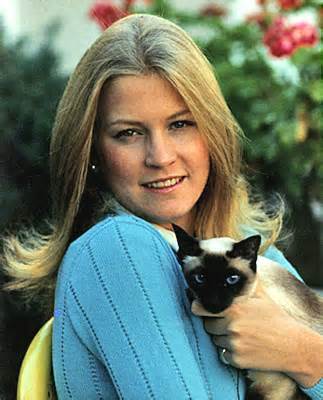
Big Five Personality Traits and Pet People
In a book called, "Why We Love The Dogs We Do." a study was done involving over 6,000 participants from age 16 to 94. 3,362 dog owners only, 1,223 cat owners only, and 1.564 who were not pet owners. People who own dogs and cats are more similar to people who only own dogs. According to the results of the study, people who owned both dogs and cats, were more like dog people.
The study revealed that about ⅓ of the cat owners were more likely to live alone and two times a likely to live in an apartment. Dog owners were more likely to be married, to live in a house, and had children living at home.
Single women were more likely to have a cat. For those people that grew up with a cat, 47% were more likely to have a cat as an adult. Only 11% of people who grew up with a dog, had a cat as an adult.
Lifestyle and Pet Ownership
This study also found that people who owned cats were more introverted, less warm, and less agreeable than dog owners. In addition, this study found cat people were less dominant type personalities. People who are more dominant tend to be more assertive, more self confident, and stand out in social gatherings. In another part of the study, it appeared that cat owners were more trusting. Trusting people are categorized as being more obliging, modest, and straightforward. The opposite would be people who are more suspicious and manipulative.
This study also asked cat people if someone gave them a puppy, and they had the space for it, and there were no objections from others, would they keep the puppy. The same question about a kitten, was asked of people who only owned dogs. Over ⅔ of the cat owners, 68% said they would not keep the puppy. Among the dog owners, 70% said they would keep the kitten.
In these studies, it is important to consider that ownership of a particular pet may reflect more of their lifestyle, than their pet preferences.
It is not really known why there are differences between dog and cat people. One theory is that the dog or the cat reflect closely to the compatible personality traits of their owners.
Dogs are very affectionate, sociable, and warm, which correlate to the extraversion and agreeableness of the Big Five Personality Traits. Dogs require more care and this may appeal more naturally to the conscientious trait too. Cats require less attention, and the owners can be more laid back because of this.
Because cats have a more independent streak, this may correlate to the more non conformist thinking of cat people. It is not as clear why cat people score higher on the neurotic scale of the Big Five Personality Dimensions. Some think that cats may have a more calming effect on people and this may appeal more to people who feel more neurotic.
When the study further looked at the gender differences, it showed that men who owned cats were more neurotic than male dog owners. There seemed to be less difference between dog and cat people who were female.
Read More
If you would like to read more about the personality of people and there pets you can click here
if you would like to read about how dogs can understand humans so well click here.
If you would like to read about behavior disorders in dogs and cats click here
If you would like to read more about personalities, please go to my website:
www.aboutpersonalities.com


